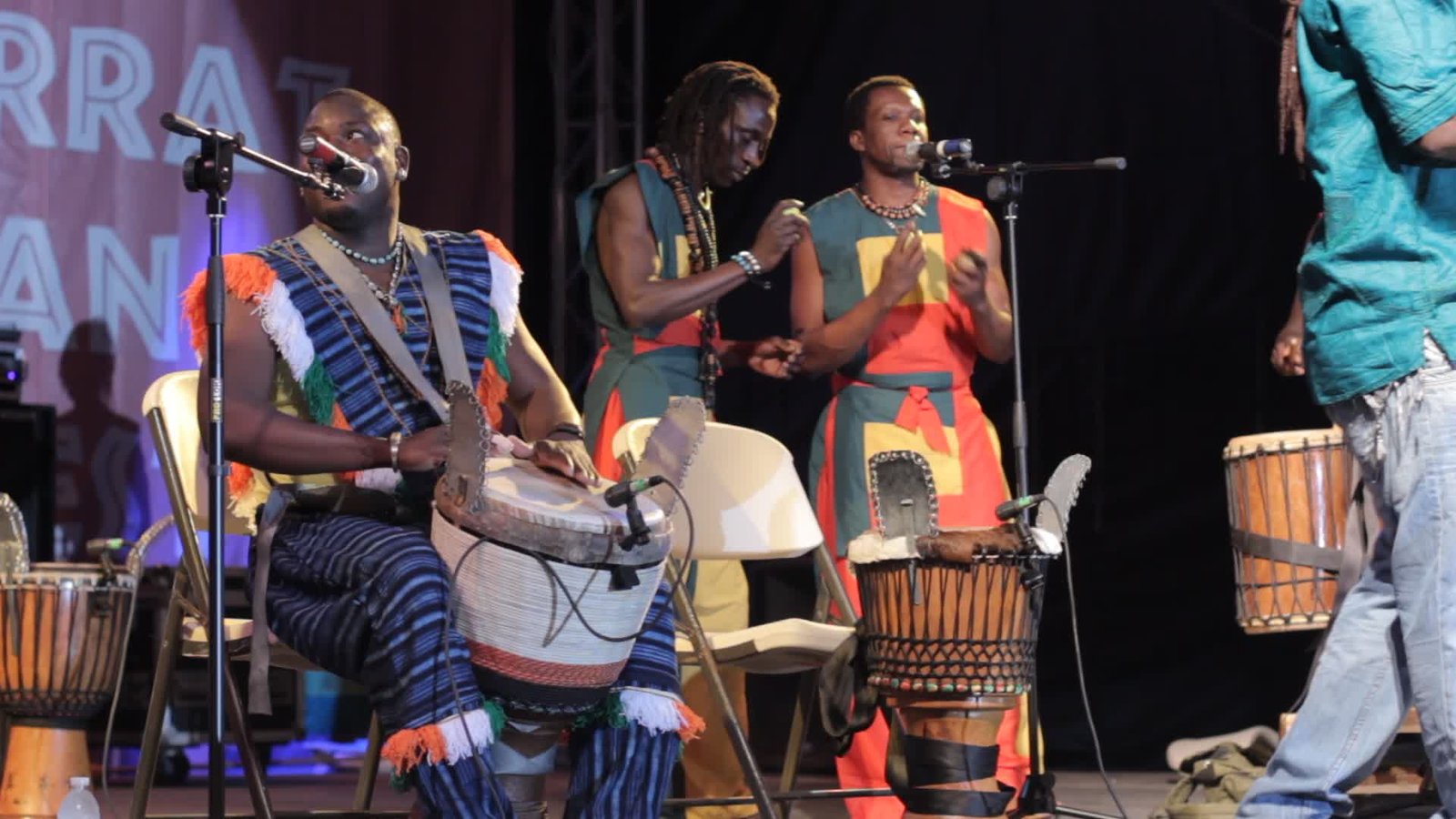In the vibrant city of Lagos, Nigeria, the air was filled with the rhythmic beats of Afrobeat as renowned musician Kofi Adebayo prepared for his latest concert. Kofi, a talented artist with a deep passion for music, had spent years building his career locally. His music, a blend of traditional African rhythms and modern influences, had captivated audiences in Nigeria and across West Africa. Yet, Kofi’s ambition extended beyond the local stage; he aspired to take his music to a global audience.
Kofi’s journey towards global recognition began with a strategic move to expand his presence beyond Nigeria. He started by collaborating with international artists, leveraging his unique sound to create a fusion that appealed to diverse audiences. One such collaboration was with South African singer Zanele Mbeki, known for her powerful voice and innovative style. Their song, a mix of Afrobeat and jazz, quickly gained traction on social media platforms, catching the attention of music enthusiasts around the world.
Meanwhile, in Nairobi, Kenya, a young entrepreneur named Amani Mwangi was observing Kofi’s rise with keen interest. Amani, who had recently founded a music management company, recognized the potential for African music to make a significant impact on the global stage. His company, AfroWave, aimed to promote African artists and their music to international markets.
Amani understood that scaling African music industries required more than just talent; it demanded strategic marketing and effective use of digital platforms. He reached out to Kofi with an offer to represent him globally. Kofi, eager to expand his reach, accepted the proposal, and AfroWave began working on a comprehensive plan to introduce his music to audiences worldwide.
One of the key strategies involved leveraging streaming platforms. AfroWave created a robust online presence for Kofi, ensuring his music was available on popular streaming services like Spotify, Apple Music, and YouTube. They also utilized social media to build a global fanbase, creating engaging content that showcased Kofi’s performances and behind-the-scenes moments.
The collaboration between Kofi and AfroWave was soon bearing fruit. Kofi’s music videos garnered millions of views, and his songs began climbing international charts. The increased visibility led to invitations for performances at major music festivals across Europe and North America. Kofi’s tour took him to cities like London, Berlin, and New York, where he performed to sold-out crowds.
As Kofi’s global presence grew, the success story of AfroWave caught the attention of other African artists seeking international exposure. In Addis Ababa, Ethiopia, a rising star named Tariq Ibrahim was making waves with his unique blend of traditional Ethiopian music and contemporary sounds. Tariq, inspired by Kofi’s success, sought Amani’s expertise to expand his own career beyond the borders of Ethiopia.
Amani welcomed Tariq to the AfroWave roster, and together they crafted a strategy to introduce his music to a broader audience. They focused on creating a compelling brand image for Tariq, highlighting his cultural heritage and musical innovation. By using targeted social media campaigns and engaging with international music critics, they managed to generate buzz around Tariq’s music.
In Accra, Ghana, a music producer named Nana Kwame was also exploring ways to scale his local music industry. Nana, known for his work with emerging artists in Ghana, saw the potential for a collaborative effort with other African music hubs. He reached out to Amani and proposed a partnership to create a pan-African music project that would showcase the diversity and richness of African music.
The project, named “African Soundscapes,” aimed to bring together artists from various African countries, including Nigeria, Kenya, Ethiopia, and Ghana. The collaboration involved creating a series of music albums and live performances that celebrated the unique musical traditions of each region. AfroWave played a crucial role in managing the project, coordinating with artists, and promoting the initiative globally.
“African Soundscapes” received widespread acclaim for its innovative approach and the quality of its music. The project not only highlighted the talent of African artists but also fostered a sense of unity within the continent’s music industry. It opened new avenues for collaboration and cross-cultural exchanges, further strengthening Africa’s position in the global music scene.
The success of “African Soundscapes” inspired other music entrepreneurs across Africa to explore opportunities for global expansion. In Dakar, Senegal, a music promoter named Amadou Diop saw the potential for Senegalese music to gain international recognition. Amadou collaborated with AfroWave to create a platform for Senegalese artists, focusing on traditional genres such as mbalax and incorporating modern influences.
The platform, named “Senegalese Rhythms,” featured a range of artists from established legends to emerging talents. By showcasing their music through streaming services, social media, and international music festivals, Amadou aimed to bring Senegalese music to the global stage. The initiative proved successful, with Senegalese artists gaining a growing following worldwide.
As African music continued to gain global traction, the collaborative efforts of artists, entrepreneurs, and music promoters led to a significant shift in the industry. African music, once celebrated primarily within the continent, began to resonate with audiences across the globe. The fusion of traditional rhythms with modern sounds created a unique and captivating musical experience that transcended cultural boundaries.
The journey from local to global for African music industries was not without challenges. Navigating international markets, managing cross-cultural collaborations, and adapting to diverse audience preferences required a combination of creativity, strategic planning, and resilience. However, the collective efforts of individuals like Kofi Adebayo, Amani Mwangi, Tariq Ibrahim, Nana Kwame, and Amadou Diop demonstrated the power of collaboration and innovation in scaling African music to new heights.
In the end, the story of African music’s global expansion was one of shared passion and determination. It was a testament to the richness of Africa’s musical heritage and the potential for its artists to make a lasting impact on the world stage. As African music continued to evolve and thrive, it paved the way for future generations of artists to dream big and reach for the stars, creating a legacy that would resonate for years to come.








